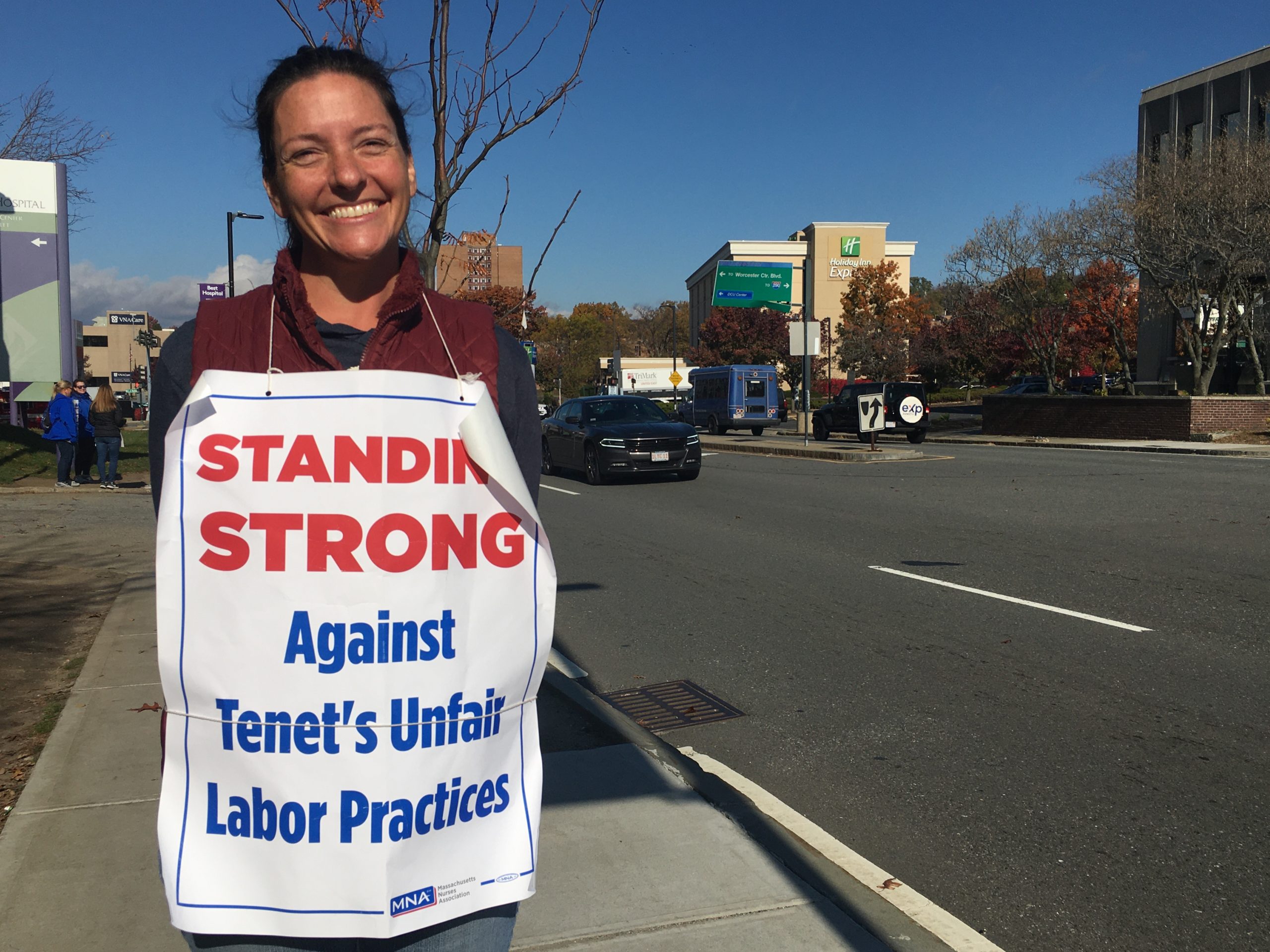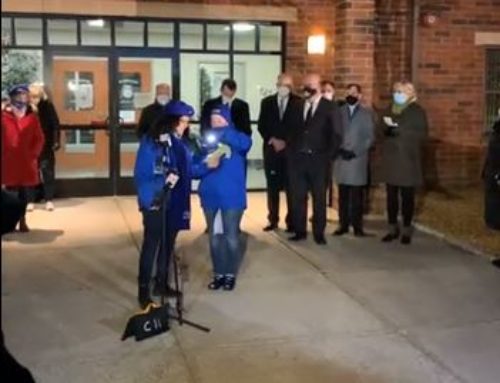WORCESTER — Sandra Thomas was the breadwinner of her family before she went on strike last March. “It’s very difficult not having a steady paycheck,” said Thomas, a cardiac stepdown nurse who began working at Saint Vincent Hospital after graduating from Quinsigamond Community College 16 years ago.
Since going on strike, Thomas’ husband, who works as a quality supervisor at Columbia Tech in Westborough, has had to pick up some extra shifts at work and purchase the family a new healthcare plan. The Thomas’ have also had to dip into their savings to stay afloat.
“I have a husband who has been carrying the brunt of things now,” she said. “He actually just had to sign up for health insurance from his own place of employment because I carried the family, everything.”
Thomas is one of hundreds of nurses who walked off the job at Saint Vincent Hospital on March 8, citing unfair labor practices and increasingly unsafe working conditions brought on by the coronavirus pandemic. Now into its eighth month, the Saint Vincent nurses strike is the longest nurses strike in the state’s history. The nurses believe that part of the reason the strike has dragged on for so long is because of the job-related discrimination women face in the workforce, which includes a lack of negotiation from the hospital, highly punitive measures, and a willingness to replace nurses with specialty skills and decades of experience with recent graduates.
About six weeks ago, Thomas found a per diem position working two 12-hour shifts, twice a week at The Eye Center in Gardner, which she says has complicated her homelife and negatively impacted her family time. For instance, her new job has created scheduling conflicts that make picking up and dropping off her children at the bus stop complicated, and on the nights she works, she’s out so late she doesn’t get to spend time with her children.
“We are asking for more help from my parents and my mother-in-law with childcare before and after school,” she said. Later adding, “My husband has got to step up and help with suppers and stuff like that. I get home, I’m home for an hour and then they go to bed. It’s just things like that, being home with the family, family time is impacted, which it wasn’t before with an eight-hour shift.”
Another nurse who has taken a financial hit during the strike is Dominique Muldoon, a 19-year veteran of Saint Vincent Hospital who also co-chairs the local bargaining unit of the Massachusetts Nursing Association.
“Financially, I have been able to put food on the table, but there’s been no extras,” said Muldoon. “I haven’t put anything in my 401k for eight months because they froze that and I’m working at a vaccine clinic. It’s not the same as far as benefits and everything.”
In November, Muldoon, 62, found work through A-Line Staffing. The staffing company has been placing her on a per diem basis at various CVS Minute Clinics about three or four times a week.
“It is a stress on our family to be on strike, that’s all you think about really. Every day you think about what’s going to happen next, what shoe’s going to drop.”
Muldoon added that she doesn’t know where she’d be financially or otherwise if she didn’t have the support of her family throughout the strike.
“Our whole lives have revolved around this for eight months and that’s hard for the family. I have good family support,” said Muldoon, a mother of two, grandmother of four. “I can’t imagine if there were people in my family who didn’t believe in what I am doing or didn’t support me because that would be a real difficult situation on top of what we are already going through.”






Leave A Comment